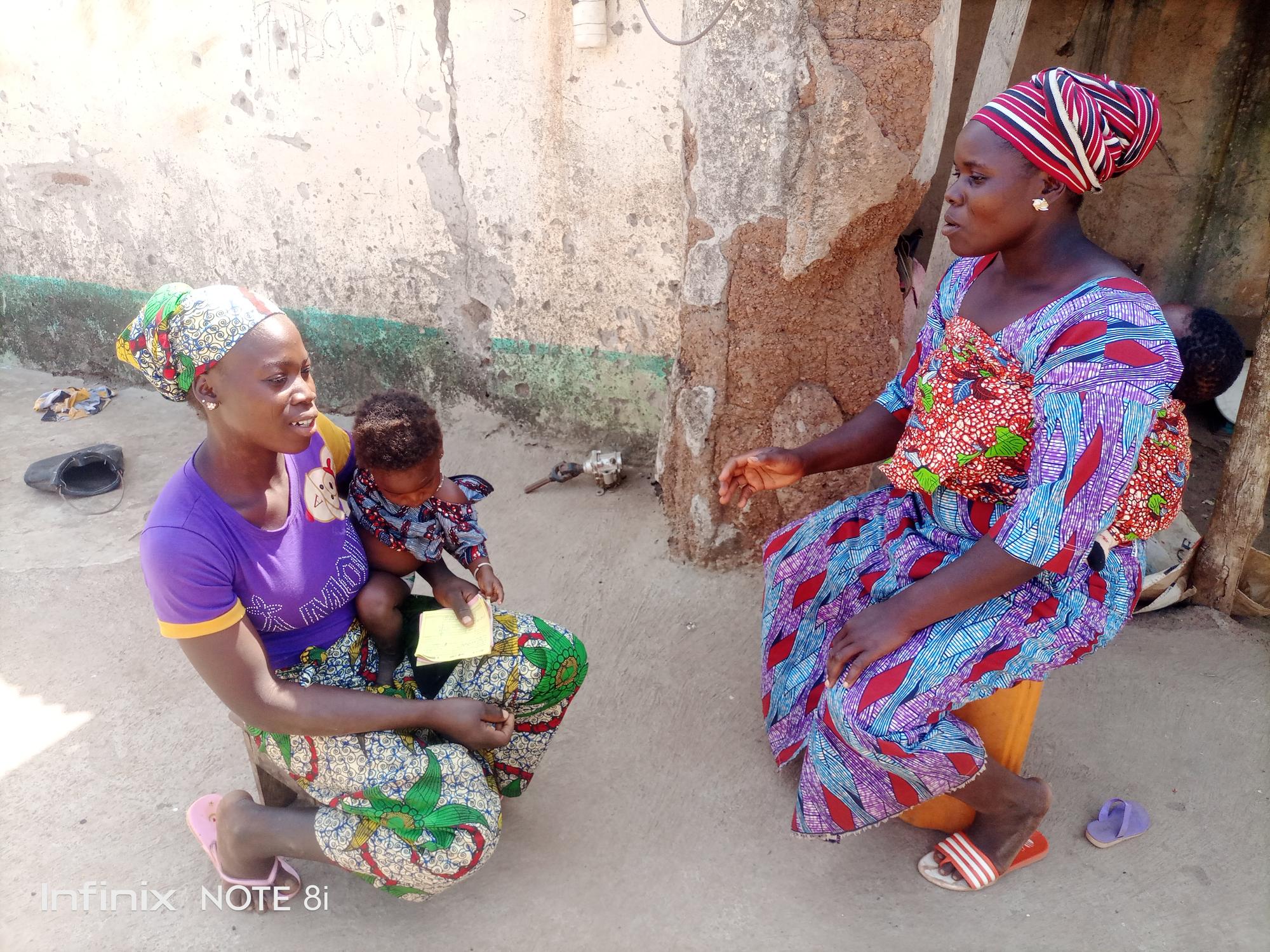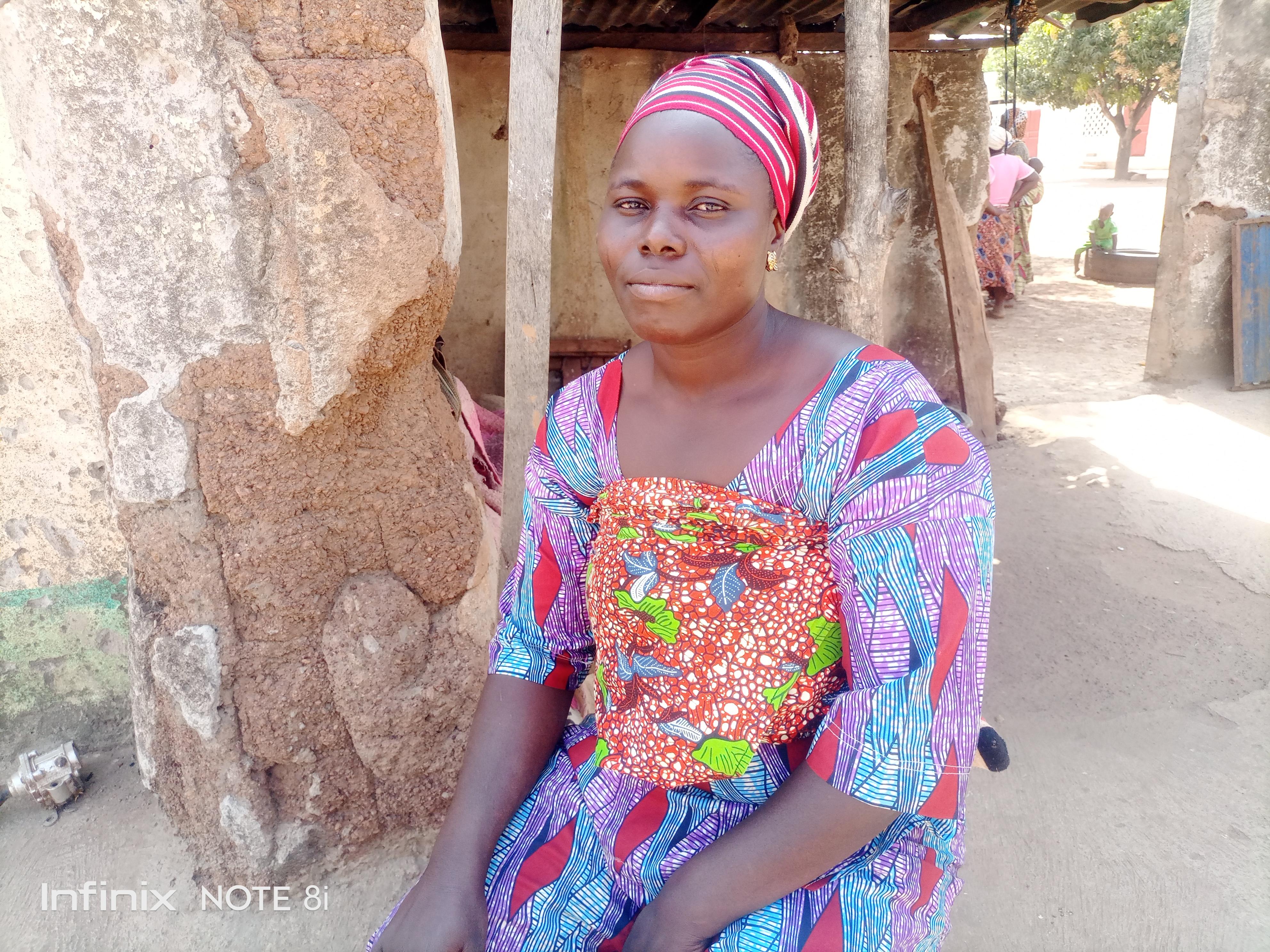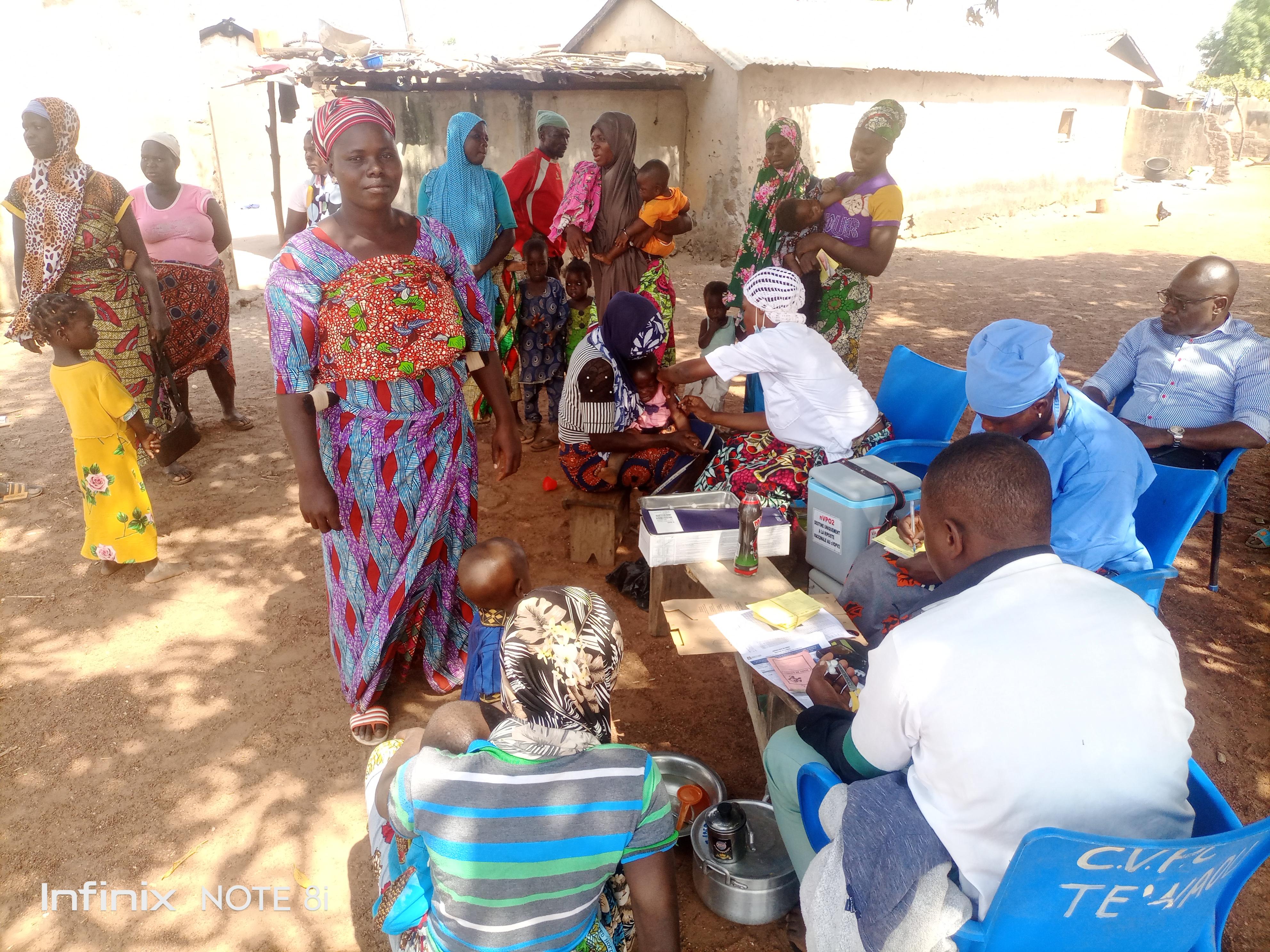Turning Hesitation into Action: How Dialogue is Driving Polio Vaccination in Benin

In the village of Tewaou, Benin, the fight against polio faced a silent challenge: parents' deep-seated fears and misinformation about vaccines. Yet, through the dedication of community health worker Zoumatou Zato, these fears were transformed into trust and action. This story underscores the power of personalized community dialogue in shifting attitudes, emphasizing the importance of empowering local voices—especially mothers—to lead their communities toward healthier futures.
Photo: Raising awareness with a mother hesitant about vaccination. © UNICEF Benin/Abdel Aziz Kadaï/2024.
In the village of Tewaou in Djougou commune, Benin, community health campaigns were facing significant resistance. During the mass vaccination campaign conducted from December 9-15, 2024, health teams noticed parents of children aged 9 to 59 months were hesitant to participate. Seeing this reluctance, 30-year-old Zoumatou Zato, a community health worker and mother herself, decided to step up.
Zoumatou started actively engaging parents—especially mothers—in her neighborhood. She spoke passionately about the benefits of vaccination, emphasizing the severe risks of diseases like measles. She personally visited households, patiently addressing parents' fears, particularly concerns around multiple injections. Through her persistent efforts, she successfully reached 568 parents, 378 of whom are mothers.

Photo: Mrs. Zoumatou Zato, community health worker from the village of Tewaou in the commune of Djougou (Donga) © UNICEF Benin/Abdel Aziz Kadaï/2024.
Thanks to her dedication, more than 156 children received their vaccines, supplements, and deworming treatments during the campaign. Importantly, her efforts also helped recover children who had previously missed vaccinations, including polio vaccines (OPV/IPV).
Initially, parental hesitation had significantly impacted vaccination rates, but Zoumatou’s involvement turned things around, boosting community trust and improving vaccine coverage by the campaign’s end.
"I became a community worker because I wanted women in my village to understand the benefits of routine vaccinations—not just for their children, but for the whole community," Zoumatou shared.
Zoumatou also encourages women to attend prenatal check-ups and seek care at health facilities to prevent childbirth complications. Her advice extends beyond polio; she urges her community to embrace routine vaccinations fully, aiming to dispel misinformation about vaccine side effects.

Photo: Mobilizing mothers at the vaccination site on Day 3 of the campaign. © UNICEF Benin/Abdel Aziz Kadaï/2024.
Reflecting on her role, Zoumatou says, "I became a community health worker to help mothers in my village understand the importance of routine vaccination. It's essential for the health of our children and our entire community."
Committed to ongoing education, Zoumatou continues advocating for routine immunizations, emphasizing prenatal care to prevent childbirth complications and encouraging families to utilize health services regularly. Thanks to her efforts, more children in Djougou, Benin, are now protected from preventable diseases, contributing to the broader goal of polio eradication.
This story highlights the vital role that Social and Behavior Change (SBC) plays in polio eradication efforts, demonstrating the impact that dedicated community mobilizers like Hassana Zato can have in overcoming vaccine hesitancy. By addressing parents' concerns directly and dispelling misinformation through trusted local voices, SBC strategies can significantly increase vaccine uptake. Continued engagement and open communication with parents and communities—particularly mothers who make crucial health decisions—is essential not only for the success of individual vaccination campaigns but also for sustaining immunization progress toward a polio-free future.
Written by Abdel Aziz Kadaï, UNICEF Benin
Edited by Daria Shubina, UNICEF NY HQ Polio SBC Knowledge Management Specialist

